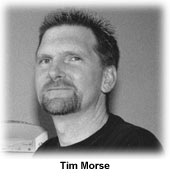|
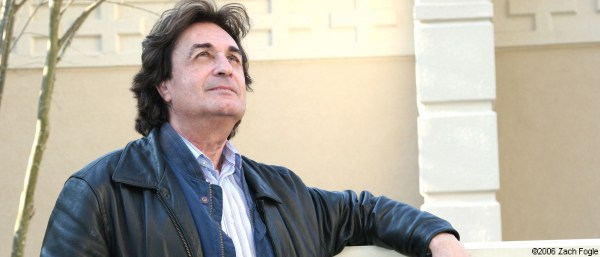
TIM MORSE: The big news is the remastering and release of your solo catalog on CD. Can you tell us
how this came to fruition?
PATRICK MORAZ: A couple of years ago, a very good friend of mine in
Switzerland told me, "You know Bill Bruford is releasing MUSIC FOR PIANO AND DRUMS and FLAGS."
Well, that was quite a surprise, but a good one, he's done a great job! The only thing I might have done differently would have been in the choice of material that was used for the bonus tracks but overall I'm very happy that Bill took the initiative to make the deal with Voice Print and that MUSIC FOR PIANO AND DRUMS and FLAGS are re-mastered and out on CD
After that, Rob Ayling, who is the head of Voiceprint in England, contacted me, and since then, over the last eighteen months we've been re-mastering fifteen albums I've been associated with. It has been a huge undertaking and a real effort to go and research all the material, i.e. the original master tapes and some other recordings for all the bonus tracks and certainly more material to be released in the future. I have spent months getting all this together, we're talking literally about hundreds of tapes. So, with the help of several people, but in particular with that of my very good friend and brilliant sound engineer Jean Ristori, we've re-mastered those CDs and we've been able to concentrate on the essentiality of the original sound and the punch of all that material. It takes real passion to have done what we've been able to achieve here!
TM: What will be released first?
PM: The very first album I recorded with my group Mainhorse in 1970
and also a very important album, Refugee with Lee Jackson and the
fantastic Brian Davidson which was recorded in the very beginning of
1974. It was in 1974 that I got together with the two ex-Nice
musicians, bassist/vocalist Lee Jackson and the fantastic Brian
Davison on drums, considered one of the very best rhythm section of
the times in English Rock, and we formed Refugee.
TM: There are some great performances on the Refugee album.
PM: It sounds so tight, because we didn't take that long to record
it in the studio. We had rehearsed the arrangements; I was composing
all the music for Refugee. We recorded at Island Studios with the
help of a very good producer John Burns, who had already produced
two albums of Genesis at the time. So he was really seasoned and
attuned to us and what we were doing. He was very sympathetic to the
way we were working, through-out the night, eighteen hours a day! It
was unbelievable and fantastic. I remember racing through London in
the middle of the night to do a piano solo, an overdub or staying in
the studio all night searching for sounds and waking up--just to
have a quick cup of coffee and back to the studio. It's funny,
because I was talking to Brian the other day, reminiscing. He said,
"Man, I wish we'd played longer together." I told him as well, "I
wish we had been able to carry on playing with Refugee at that
time", because it had done well. Anyway, the rest is history.
TM: Can you describe the way Yes wrote and recorded the songs for
RELAYER?
PM: It was in early August
'74 that I had one of my very first
professional recording encounters with Yes. Their rehearsals and
writing sessions were being recorded by the brilliant and visionary
sound engineer, Eddie Offord and his assistant Genaro Rippo, on his
own mobile studio--a state-of-the-art multi-channel mixing desk and
a 24 track recording machine--and, after the guys played me the
first song part of "Sound Chaser" itself, Jon asked me to come up
with some kind of introduction to the whole thing. So I kind of
instant-composed the intro on the spot and that was recorded, in no
more than a couple of takes, after I had explained it to Alan and
Chris, we rehearsed it a few times before recording it. That was
very fresh and urgent, to keep the music alive at all times.
However, it must be understood that we could play all the pieces in
their entirety, live, as we were polishing them for the recordings,
and even if we were recording them by sections which would later on
be pieced together, like a movie, we could really play all the
tunes, the arrangements and the solos at once, first and foremost!
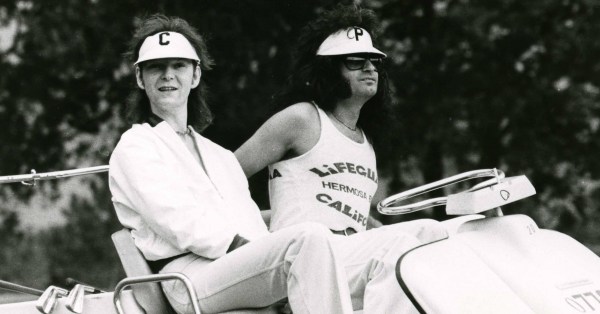
Later on, the bulk of the songs and their different parts were
recorded, and re-recorded at Chris' house, where he was building a
studio. We were still recording on Eddie's equipment and the
atmosphere was very relaxed. We were recording mainly during the
daytime, starting just after noon and finishing quite early in the
evening. I remember spending all my nights and mornings working on
the material I had to learn for the upcoming tour and also composing
and polishing my parts I was going to record for RELAYER. Most of
the parts I played for RELAYER, I didn't write down on paper--I have
an excellent memory, thank God--with the exception of certain
extremely precise passages, where there was so little space to
include a solo, i.e. the contrapuntal keyboard solo, which sounds a
like a fugue towards the end of "To Be Over", before the reprise of
the vocals. I wrote that solo down, in the studio, on the
spot--there were no computers then to do the job--and I recorded it
in one take once I had it down for sound level. My Moog synthesizer
solo on "Sound Chaser" was also recorded in one or two takes once I
got my sound down. There was some pressure to deliver, and these
were very exciting days! All this time, recording, composing,
rehearsing was quite hectic, as I was commuting everyday from
Central London to Buckinghamshire, where Chris' house was located.
And for the recording of "Gates of Delirium", apart from all the
different and intricate musical themes, bass and guitar lines,
keyboard lines and parts, rhythms, breaks, unisons, lyrics, vocal
parts and so forth, there was also a lot of research going on in
terms of the sounds and all the special sound effects we put in the
battle sequence. Although the whole piece of "Gates" could be played
in its entirety by all of us prior to the final recording sessions,
with the exception of the special effects, it took however at least
a good couple of weeks to record it in different sections. The best
takes of each part would then be edited and assembled later, and
then all kinds of overdubs, from guitars--lots of them--to vocals,
keyboards, basses, and percussion were added to form a conceptual
whole.
TM: Your first solo album THE STORY OF I was released while you were
still a member of Yes, in fact all the band members recorded and
released solo albums in that period. Do you remember how this got
started?
PM: After the first tour of RELAYER in November/December of
'74 we
all took a break. Then I came back to London and in January/February
Steve was already starting to get his solo album together--although
we hadn't had an official word on that. He asked me to take part in
it and gave me a tape with a melody "Da-duh-do-da... " [from the song "Beginnings"]. He asked me if I would like to do something, like an
orchestration and he mentioned the name Vivaldi. So I took that tape
and transcribed it and so on and for the next few weeks I
orchestrated the whole thing. A few weeks later I played with him
the whole thing, with a chamber orchestra that I conducted. Steve
was really knocked out by it, he said, "Wow, I didn't expect that!"
Of course it didn't sound anything like Vivaldi, it sounded like Moraz.
Chris was also interested in me playing on FISH OUT OF WATER and he
asked me if I wanted to do some sessions, of course I was very
interested to do that. It was a very good experience for me, because
I got to know everybody individually in their own type of work. And
the word came out that we were all going to do solo albums during
the year of '75. You know the video of RAMSHACKLED with Alan White?
A very good, solid rock album, by the way!
TM: Yeah, sure.
PM: I'm doing a little cameo there. I didn't play on his album, but
I did a cameo. It was a great vibe, a great time. Everybody was
really happy and it worked out. I think we all did pretty well, in
terms of expressing ourselves on our solo albums.
TM: Going back to FISH OUT OF WATER for a second, was that the first
time you played with Bill Bruford?
PM: I'd met Bill, but we didn't play together, because Bill had
already played his parts and I was doing overdubs.
TM: Oh, they'd already laid down the rhythm tracks.
PM: I don't remember playing with him at this stage, but I had met
Bill before... I met the whole band when they played in '69 in the
Golden Rose Festival in Montreux and we had invited them to a big
jam. Then, we re-met in Basel several months later, in November
1969, when all the guys, who were appearing at the Komedie Theater,
came to see us play at the Atlantis Club, accompanied by a friend of
ours, a Radio DJ, "Swiss Chris", [Chris Schwegler] who brought them
to the club, after their concert. It was quite late in the night and
the place was packed solid! We were playing under the name of my
current group of that time, Patrick Moraz's Integral Aim. We were
already playing and developing the material which was going to be
recorded some time later under the name of my new group Mainhorse,
which included one of the longest pieces of our show, entitled
"GOD". But anyway, years later Bill and I realized that we were
living in the same village.
TM: Where were you living at that time?
PM: In Surrey, but that was 14 years later! My house was next to
Eric Clapton's house and Bill's was five minutes away. It was a tiny
little village in a very beautiful part of Surrey and very untouched
at the time.
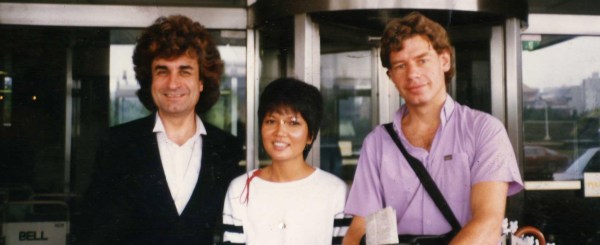
TM: Was it initially his idea to contact you about MUSIC FOR PIANO
AND DRUMS?
PM: I think we bumped into each other. In 1983 I'd just found out--the Moodies were supposed to go on tour--in April or May we were
supposed to do a big tour which was postponed and I had all this
extra time. We probably bumped into each other, maybe at one of
those English countryside grocery stores or the post office--I
don't know! "Hey man, what are you doing here?" "Oh, I live here... "
[laughs] So we decided it would be nice to perform on acoustic piano
and drums. I said, "I've got some keyboards at my house, but I could
rent a grand piano." and he came over and we played and we found we
had something to say, we had some kind of empathy together,
something to express and why don't we record an album? We rehearsed
for about three weeks, I wrote most of the music. Some of the tunes
were completely improvised. Then we went into a studio not too far
from our village, at Roxy Music's guitarist's studio, which had a
grand piano, and we recorded the whole album in about four days,
with three days of editing and mixing and when the time came to name
the album he said, "What are we going to name this?" and I said, "MUSIC FOR PIANO AND DRUMS!" As simple as that. [laughs]
TM: Let's return to THE STORY OF I. This project must have been a
huge undertaking for someone's debut solo album.
PM: It came out exactly right. We had already decided before the
tour that after the tour of '75 in the summer that we were going to
do or finish our solo projects. I already had the idea for the story
for THE STORY OF I, which really crystallized when I was in
Nashville and actually Jon was the first person I told the story to
in the elevator of the hotel between the sound check and the concert
that night. After the tour I took my engineer Jean and said, "How
about going to Brazil?" We had a very close relationship with
Brazilian musicians and bands since I had been the musical director
of the Brazilian ballet three years before that in '72. We were very
attuned to music of percussion instruments and so on. I told him
that I wouldn't mind doing some recording in Brazil, so with the
help of some people we met down there we organized some sessions. I
recorded for like two or three days virtually non-stop with around
sixteen percussionists.
TM: Were you recording prepared material at that time?
PM: I had some of the tunes, yes and more. I had been playing that
kind of stuff a lot and I was very much versed in that kind of
music. I was also developing my own style. I had a lot of material
that would have been used for Refugee II, if ever that had happened.
I was very prolific and very inspired. I was down in Brazil recording
in the studio--I had a great situation. Every percussionist had
their own little booth, the separation was very well done, but then
there was a real unity. And the guys were playing unbelievably well
together, which is not always the case. I wanted to use the
percussionists, not in a Samba like fashion only, but I wanted to
use them in a symphonic approach. I was conducting the
percussionists and bringing different instruments at different
times. At one point I heard this Agogo bell going "Da-duh, dut-dut
da-do... " that gave me the idea to record that tune "Cachaca."
Somehow, it became more known than some of the other pieces, because
it seems so simple, on 2 notes like that [but] don't worry, it's not
THAT simple! And it was a real joy to record it. We had several
twenty-four track tapes that we took back to Switzerland.
As I was
also producing the album there were a lot of calls to make. I also
had quite a few new inventions I had designed, being built by some
electronic wizards at that time: The triple manual Orchestron, the
first ever multi-track digital sequencer, the first electric drums
Octapad, which was reprised by Roland 10 years later, and the first
guitar synthesizer, which I had envisioned being made for Steve [Howe]. These
were all my ideas and realizations of those times! I also invited
Bob Moog for several weeks, and was developing the Polymoog
synthesizer, for which I was also a consultant. I even invited Jon
Anderson and his wife. They came to Geneva and stayed for a few
days. I had asked my very good friend at the time, Ray Gomez,
absolutely brilliant guitarist, to play guitar on the album and Ray
introduced me to the extraordinary bass player Jeff Berlin. I think
it was Jeff's first big invite.
TM: It was his big break.
PM: Alphonse Mouzon was the drummer with Larry Coryell. He was the
equivalent of Billy Cobham at the time, I couldn't get Billy Cobham
so I got Mouzon and I was very happy with him. For side two of the
album I got Andy Newmark to play drums. John McBurnie's name came
up, because he was in a band with Ray Gomez at the time which was
under the wings of Yes. John had also been the lyricist and singer
in a band with Lee Jackson called Jackson Heights, which was
disbanded when we formed Refugee. So I decided to take him and he
did a fantastic job, I think with the lyrics and the vocals. We had
a fantastic empathy to the point that I asked him later to sing on
Out in the Sun and also much later on Time Code. Anyway, I think one
of the journalists from Melody Maker said THE STORY OF I makes the
crossing of the Alps by Hannibal look like a quiet afternoon in Hyde
Park! Or something like that... [laughs]
TM: It was like a cast of thousands--in Technicolor!
PM: Right! Cinemascope, Technicolor! 3D! Animatronics!
TM: By the way, I have to interject--in the song "Dancing Now" the
unison riff the band plays, that's a little motif that I find myself
humming quite often.
PM: It's a great piece to play. When you consider we played in
unison with Jeff Berlin and Ray Gomez and Andy Newmark was on drums
and I was on keyboards. We played those lines in unison--the power
generated in the studio was absolutely awesome. I love the way that
it's extended at the very end of the song [sings the last line]
there's that big 'E' which corresponds to the low note on the bass.
And of course there's that "baaahhhh", you know? Which one can hear,
it's kind of a signature for me because you can find it in the
beginning of THE STORY OF I, you can find it in
FUTURE MEMORIES, you
can find it Coexistence, you can find it in all kinds of places. So
it's like a signature.
That was a very rocking kind of tune, "Dancing Now". I think that
harmonic content, the way it develops, makes it a really interesting
song. I love playing it, I still play it now. All this material, I
don't know how many hundreds of pieces I've composed, I can play all
of them note for note and I still do. Of course I don't play them
all the time, at the same time! [laughs]
TM: Exactly...
PM: It'd take me weeks! I do play them and I do rehearse them with
some of the musicians I'm playing with and so I'm always ready to do
concerts and go on the road.
TM: I know that in the two CHAT shows that I saw, in both of them
you incorporated music from through-out your career. On the last
show of that tour in the bay area someone requested "Rise and Fall"
from THE STORY OF I and you pulled it out of your hat and it sounded
great.
PM: [enthusiastically sings the main theme] I enjoyed doing that you
know? I don't regret any notes at all composed for these albums and
I'm still playing them.
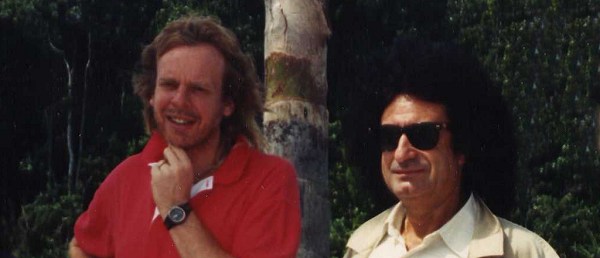
TM: Did you actually lay down any tracks on GOING FOR THE ONE, even
at the demo stage?
PM: After my respective participation in Steve's and Chris' albums,
and since the end of our respective solo albums recordings, we were
constantly composing, searching, playing and recording demos upon
demos of what was going to become GOING FOR THE ONE. There must be
miles of tapes with me [playing on them], which have most probably
been erased or lost since then. As I had mentioned before, I had
participated to the creation of GftO well before it started
officially to be recorded in Montreux in the fall of 76....Whatever
was cut-off from the finished album, I must have had some input and
my influences were there during the compositional stages,
nevertheless, having spent more than two years, three big tours and
the making of some of the solo albums with the guys. Imagine the
possibilities!
TM: One last Yes question--on the remaster of TORMATO there is demo
of a song called "Everybody's Song". On the song there's a short
synthesizer solo that definitely sounds like your style--do you
recall anything about this song?
PM: I think it is [me], but it's so short, it's only 4 bars long!
And so unbelievably in-the-back in the mix that it's almost
inaudible! I'm quite sure there must have been more than that and
more things from past recordings and outtakes of all kinds of
material.
TM: When did you start becoming aware of world music and begin to
incorporate it into what you were doing musically?
PM: Oh very early on--in the sixties already. I've been to Africa
many times before I'd even started Mainhorse. And I had a lot of
contacts with musicians, I was playing everywhere... the Ivory Coast,
Congo, Chad, everywhere--you name it! The place I didn't go to was
South Africa at the time. I've been to a lot of countries and I've
played with a lot of percussionists and musicians. In 1968 with the
help of a good friend we brought some African percussionists to
Switzerland and we did a whole improvised concert, we were very much
into that. I've got to admit this as well, before I was a rock
musician I was versed in all kinds of ethnic music. My I album, or
THE STORY OF I, if you prefer, was considered and named the first
real World Music album of its kind, implying the notion of a certain
trans-culturalism. On the other hand, one could arguably say that
the first big time band in world music--if you can call it that--was Santana.
TM: That's true. Actually I was recently listening to
MAINHORSE and
felt that there was some Santana influence or vibe--is that far
off?
PM: No, it's not far off at all. The genial guitarist Peter Lockett
could play like anybody at the time. He could play like Santana, Jimi Hendrix, Jimmy Page, Eric Clapton, Jeff Beck and he was only
eighteen years old and he was fantastic. I remember we used to play
clubs in Germany doing the last set and it's three or four o' clock
in the morning and so on we used to play the blues and Latin improvs
like that. So probably some of that touch in MAINHORSE, yeah.
TM: Okay moving forward, PATRICK MORAZ III is one of my favorite Moraz albums, I love the unique combinations of keyboards and
percussion on that album.
PM: I was relistening to the song "Primitivisation"; I was just
playing it before we started... [suddenly the music comes on very
loudly]
TM: That's great stuff!
PM: It sounds unbelievable! That third album was never released as a
CD in the western world. I think a CD was produced in Japan about
fifteen years, but it's never been released--nobody's heard it
since...
TM: Since the vinyl...
PM: And there's a lot of people who have been born since then! I
really enjoyed making that album. I wanted to play all the
instruments and I played some of the percussion instruments. I had
the help of Djalma Correa--the star percussionist--and I also used
the sixteen Brazilian percussionists. I did some live concerts of
that music in '78 in Brazil, prior to Claude Nobs, the famous
promoter of the Montreux Jazz Festival, inviting me to top the bill
at the 78 Sao Paulo Jazz Festival which he had organized with some
Brazilian promoters. He flew me out for a weekend--I was just
finishing rehearsals with the Moody Blues, before going on our first
American Tour--and came back on a Monday--it was unbelievable. We
were sharing the evening with Chick Corea's group and Stan Getz. It
was a magic evening, sold-out to the rims of the Anhembi Stadium,
all the people on their feet dancing, absolutely surreal!
TM: You and I have never spent much time talking about your tenure
in the Moody Blues. How do you look back on those years now?
PM: I was with them from them from '78 through technically '91, but
in fact my last gig with them was in September 1990. I was only
notified that I would no longer be a part of the Moody Blues just as
we were preparing to go on tour in 1991. I think of myself as a
member from 1980 to 1991, but I did two tours with them in '78 and
'79. It was only in March 1980 that we started recording LONG
DISTANCE VOYAGER. For that album I'd prepared myself in a way, with
all of my keyboards, my sounds and so on by doing Coexistence. It
was recorded from the end of '79 to February of 1980 and of course
I'd practiced and progressed with all of the new instruments I was
using. It's an album I cherish a lot, because it documents my
history with the pan flute player Syrinx. People think that
Coexistence is called Syrinx, no Syrinx is the name of Simon Stanciu
and that's his nickname. It actually comes from the ancient Greek,
which means the god of music. Coexistence has a lot of reflection of
what you'll find in the Moodies, although maybe my keyboards in the
Moodies were... they were well mixed, right?
TM: Oh yeah, I think they were upfront in the mixes.
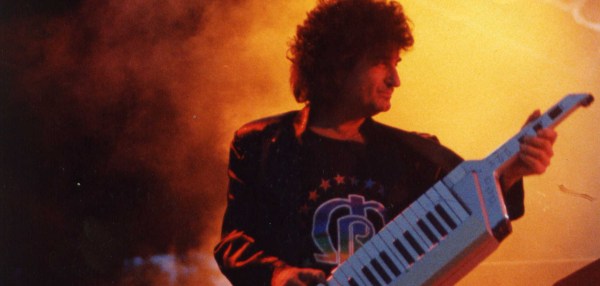
PM:
Pip Williams was a fantastic producer I've got to say, we really enjoyed working with him, also on
THE PRESENT, which we did in 1982. I think that album was a
very underrated album, but I think it was a good album. I never
understood why it didn't make it. It's a part of rock 'n roll
politics that I'll never understand...
There is a film company out of England that is documenting the history of different major rock groups. They have asked me to participate in both the Moody Blues and Yes documentaries. While Yes has always acknowledged that I was a member of the band the problem with the Moody Blues is that they've completely shut me out of their history. They act as though I never existed. And while the argument in favor of me taking part in this documentary ,might be, well at least my past with the Moodies will be acknowledged, the prospect of doing this interview left me with a lot of quandaries, such as: After spending 12 years as part of the Moody Blues, recording, touring, being interviewed for major newspapers, magazines and television as a Moody Blues band member, filming music videos, accepting awards, doing photo shoots for our album covers from 1978 to 1990, etc. etc. sleeping, eating, partying, flying all over the globe together and at times with our families in the same jets, staying in the same hotels and so much more...
The prospect of becoming a 5 minute footnote in this documentary with the probability of being called a hired gun (or in so many terms), after all those years with the Moody Blues would only add to my sadness and disgust at the way I've been treated by the people that I once called "friends." And so I have chosen not to take part in this video even though the producer had told me that his intention is to do an unbiased accounting of this history, I would not feel happy at the end of the day to be part of something that I will not be given the full respect for by the Moody Blues, that I rightfully deserve. As the title of the song goes "No More Lies".
TM: Yes, indeed. It's especially upsetting when the update
you brought to their sound was a major factor in them having such
success in the '80s.
PM: Of course, there's no doubt about that. I mean they changed
[updated] their lyrics, but the music was great, for the Moodies
that is. There was nothing wrong with that, you know? I know there's
a hardcore group of fans who consider the seven original albums of
the Moodies were the true Moody Blues music as opposed to the ones
that came after--from OCTAVE onwards. I wasn't associated with
OCTAVE, but I was associated with LONG DISTANCE VOYAGER on, and I
did much more than just keyboards.
TM: What's the timetable for the release of the remasters? Will they
be over the course of a year?
PM: No, it will be much quicker than that. In two days
MAINHORSEand
REFUGEE will be coming out--that is in England [the first pressing
of REFUGEE is already sold-out, but is being re-pressed]. On the
12th of June, will be the official release worldwide of THE STORY OF
I and OUT IN THE SUN. Did you know the 12th of June is a very
important day, it's exactly thirty years after the JFK stadium--the
biggest Yes concert. For some reason it just coincided with that.
TM: That's a nice way to observe the anniversary.
PM: It's very good, and there are bonus tracks on the albums through
FUTURE MEMORIES I and II. There will be two albums released a month.
TM: You've certainly given your fans something to look forward to.
Do you find since you've been revisiting your history that there's a
personal favorite--is there an album that stands out for the time
it was created or its music or both?
PM: It's like if you ask a film director if he prefers a big
production compared to a small production. When we did THE STORY OF
I it was a big production, there were quite a lot of musicians and
singers. And when I did FUTURE MEMORIES "Live on TV" and
FUTURE MEMORIES II" although the logistics were very involved, it was a
completely different type of production, on top of the fact that I
was playing all the music on my own, "live on TV" and in an "instant-composition" kind of situation. But it terms of the content
and the historical point of view, I think the FUTURE MEMORIES series
is as important as THE STORY OF I. Of course, I like the big
productions too, the big orchestrations and arrangements and so on.
But considering that I improvised everything in one take, not
necessarily the first take, when I did FUTURE MEMORIES I and
FUTURE
MEMORIES II I really improvised all of that music on the spot.
Except one tune called "How Basic Can You Get", which is a song I
wrote, sang, and played all the instruments with the exception of
the bass, with and excellent player whose name escapes me right now
and of the drums, by Dave Mattacks, an excellent English drummer,
and which was co-produced by Gregg Jackman, a fantastic engineer. I
called them 'instant compositions' because for me they were
crystallized improvisations, which means that, for example, "Eastern
Sundays" was the second take. I know that "Metamorphoses", the long
piece which is eighteen minutes long, in three movements and on
twenty-two keyboards, was the second take. Which means I had
improvised it once to show the movements to the camera, and I was
playing almost the same, because I'd never play anything exactly the
same when I do an improvisation, especially in a situation like
this.
TM: But you'd been through the process once.
PM: That's right, so if I can't call it an improvisation, I've got
to call it an "instant- composition". I love to improvise and I love
to also instant-compose, which means I'm composing in the moment
that an improvisation takes place. It's crystallizing that
improvisation to make a fully fledged composition, but it's such a
flash, such a rapid time that it can be called an
instant-composition.
TM: You can sit at an instrument and craft a piece of music and
there's nothing wrong with that approach, but if you're improvising
and you get that moment and it's there--that to me is the spark
behind real composition.
PM: Right, right. Most of the FUTURE MEMORIES series were completely
improvised and when I did the rehearsal of the movement it was only
because we had the television cameras and we were live on TV.
TM: You had to block out the movements for the director.
PM: I never even played the entirety of the compositions at
first; I really kept that magic moment for the take which was
recorded. Getting back to personal favorites, I love my third album,
PATRICK MORAZ, THE STORY OF I, and there are things in
OUT IN THE SUN that I
love. I enjoyed recording that album, especially after the turmoil
I'd been in at the end of '76 when I left Yes. That was a very big
relief to record OUT IN THE SUN and that's why it sounds light
hearted and happy, you know? I didn't need to do Story of I Part Two
at that time! I still love to play those pieces, "Time for a
Change", and that rock thing "Da-duh-do-da-duh, dah!" "Love-Hate-Sun-Rain-You". It's really great to play
"Rana Batucada"
as well, and even "Out-in-the-Sun." With the solo electronic albums
and even the solo piano albums, it's more of a personal and direct
approach, but they are also my favorites!
TM: What is the status of the A WAY TO FREEDOM project?
PM: A WAY TO FREEDOM seems to be taking a long time to come out.
It's not the lack of material, but more about the inherent inertia
which has surrounded the project from the beginning. I have lots and
lots of recorded material already, but I never seem to be able to
put the finishing touch to the production as a whole. Especially now
that I have all these [re] releases soon to be coming out, I've been
immersed in a lot of research and restoration and that takes a lot
of time and effort. It is still a work in progress and I cannot
announce its release yet. But it will come out in the
not-too-distant future.
TM: Do you have any live appearances planned?
PM: I'm preparing for that, I also need the right kind of logistics.
I've got these fifteen releases with Voiceprint, but also in Japan
I've got a very good company, Vega Music which has signed my piano
album RESONANCE. It's just been released and it's fantastic and they
want to bring me to Japan to do piano concerts and they also want me
to do some electronic concerts, we'll see, that would be great! There's also talk of me doing
concerts with my drummer Jacob Armen. He's one of the most
unbelievable drummers I've ever played with; he's a true musical
genius. I've just been recording with him and he's finishing his
solo album on which I've been playing some of my compositions. We
did a very brief, but very remarked-on performance at the NAMM show
last year at the Keyboard Magazine party, and we blew everybody's
mind apparently. I remember the reaction from the house--we brought
the house down! Of course if we had to play some shows tomorrow,
we're ready. The guy's on par with me. We have a way of playing
together at the speed of thought. If you start thinking about it, it
almost goes beyond telepathy! We are actually playing and
interacting at the nanosecond level, Jacob and I. Even he can't
believe it! That's what we want to bring to the concerts.
TM: I know people would love to see that live. To wrap this up is
there something you'd like to impart to your fans?
PM: Freedom, peace, love, creativity! What would life be without
being able to be creative? By creative, I mean being able to use our
imagination, intelligence, knowledge, intuition and spirituality to
access higher levels of consciousness, and at the same time fulfill,
through the joy of others, our dearest dreams, our deepest visions,
our most secret desires and reach new plateaux of awareness where we
feel we could, eventually, find the keys to unlock the gates to the
multiple universes of our unconscious. Of course, I love my fans.
When we used to do the CHAT tours, I think the majority of people
understood I could only do that once or twice in my life, but I had
the best time with the fans and interacting with all the people.
Actually, I would consider doing another tour like that, but
different, maybe with some electronic keyboards as well, and in some
larger venues, like theaters and concert halls. Let's see if there
is some interest out there.
In any case, please tell all your
readers, and their families and friends, and the friends of their
friends, to make sure they buy all of my remastered CDs. They won't
be disappointed, and the more interest there is, the more there is
going to be a chance that I can come out and do a tour with all this
music.
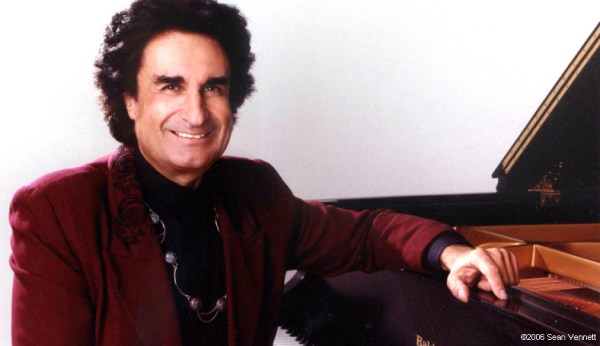
Patrick Moraz Website:
http://www.patrickmoraz.com
Patrick Moraz Newsgroups:
http://launch.groups.yahoo.com/group/MorazNews
Contact for Patrick Moraz:
Wingman@shore.net
Thanks to Brian Kelleher for arranging this interview. In regards to
the timeline of the remastered CDs, they are as follows, as per
www.Voiceprint.co.uk [please note that these are the official
release dates in the UK].
22.05.06 IDVP001CD Patrick Moraz MAINHORSE
22.05.06 IDVP002CD Patrick Moraz REFUGEE
12.06.06 IDVP003CD Patrick Moraz STORY OF I
12.06.06 IDVP004CD Patrick Moraz OUT IN THE SUN
10.07.06 IDVP005CD Patrick Moraz PATRICK MORAZ III
10.07.06 IDVP006CD Patrick Moraz COEXISTENCE/LIBERTATE
21.08.06 IDVP007CD Patrick Moraz TIMECODE
21.08.06 IDVP008CD Patrick Moraz FUTURE MEMORIES LIVE ON TV
04.09.06 IDVP009CD Patrick Moraz FUTURE MEMORIES II
04.09.06 IDVP010CD Patrick Moraz FUTURE MEMORIES 1 & II
09.10.06 IDVP011CD Patrick Moraz Human INTERFACE
09.10.06 IDVP012CD Patrick Moraz WINDOWS OF TIME
13.11.06 IDVP013CD Patrick Moraz LIVE IN PRINCETON
13.11.06 IDVP014CD Patrick Moraz RESONANCE
13.11.06 IDVP015CD Patrick Moraz ESP
Tim Morse is the author of "Yesstories" and
"Classic Rock Stories". He
has also released an album of original progressive rock entitled Transformation. For more details go to
www.timmorse.com.
|







